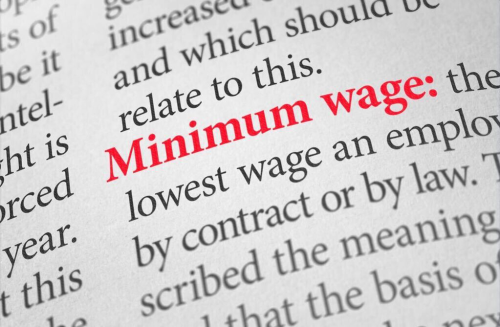In case you missed it, this past Sunday (July 24), the United States reached a sad anniversary. It has now been thirteen years since Congress last raised the federal minimum wage to $7.25.
$7.25 was already inadequate back in 2009, but today it is downright deplorable. Here are some key facts to put Congress’s failure on this issue into perspective:
- A full-time minimum wage worker in America makes just over $15,000 a year. (If you’re wondering, Elon Musk makes $23,000 in one second.) That income level puts a minimum wage worker supporting even just one child below the federal poverty line.
- In 93% of US counties, a person earning the federal minimum wage cannot afford a single-bedroom apartment.
- The estimated “living wage” – i.e. the wage necessary to afford essential, basic needs – in America is $16.54 an hour for a family of four with two working adults.
- If the federal minimum wage had kept pace with inflation since 2009, it would be close to $10 an hour today.
- If the federal minimum wage had grown at the same pace as productivity in America since 1968, it would be $23 an hour today.
- If the minimum wage had grown at the same pace as Wall Street bonuses over the last 35 years, it would be over $61 an hour today.
It is high past time that America’s 53 million low-wage workers received a raise. Over the past thirteen years, they have endured the Great Recession, a worldwide pandemic, historic levels of inflation, and massive changes in the cost of living. They cannot afford to wait one more day for bigger paychecks, and they deserve nothing less.
Conservative politicians and media pundits frequently rail against raising the minimum wage over claims that doing so would kill jobs, put small businesses out of commission, and slow the economy. Nothing could be further from the truth. Study after study has shown that states that have raised their minimum wages have not witnessed job losses but instead experienced a boost to their local economies. It’s simple math: when workers have more money to spend in their communities, they do just that and everyone wins. Wealthy business owners like us might take a hit in the short term by paying our workers more, but in the long term, we are more profitable as more people buy more of our products.
It’s no wonder then that raising the minimum wage is such a popular issue among voters of all political stripes. In the last 20 years, 100% of statewide ballot initiatives to raise the minimum wage have passed – even in “red” states like Montana, Arkansas, and South Dakota and “purple” states like Ohio, Florida, and Arizona. Even if they aren’t low-wage workers themselves, voters don’t have to look far to understand that the minimum wage we have now is just simply not good enough.
Thirteen years of inaction on this front is too much – Congress must act now to raise the federal minimum wage. Our country simply cannot afford to reach a fourteenth anniversary of $7.25. Lawmakers on Capitol Hill must do whatever is necessary to raise the minimum wage to at least $15 an hour.
Lawmakers need to stop pandering to the whims of their ultra-rich, corporate donors and start doing what’s best for their actual constituents. The Republican party is basically a lost cause, but this isn’t just a Republican issue. There are eight Democratic Senators who all shamefully voted against legislation to raise the minimum wage: Joe Manchin, Kyrsten Sinema, Jon Tester, Jeanne Shaheen, Maggie Hassan, Angus King, Chris Coons, and Tom Carper. If Democrats want to ever credibly claim to represent American workers, they need to get these eight in line and make a deal happen NOW.
If Congress can’t find the political will to do so, then the President must act. When President Biden came into office, he raised the minimum wage for employees of federal contractors to $15. Given the rising cost of living, he should now raise that wage even higher, to no less than $20 an hour. This move would benefit thousands and, hopefully, inspire Congressional Democrats, particularly those eight “problem” Democrats, to do the same for the rest of the low-wage American workforce.
